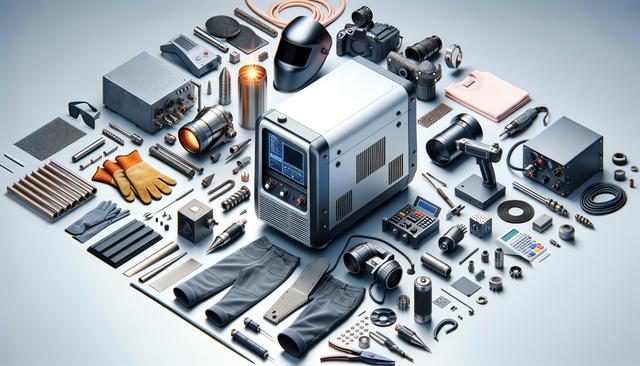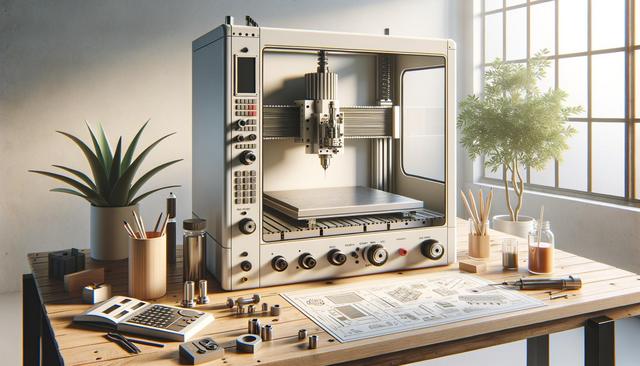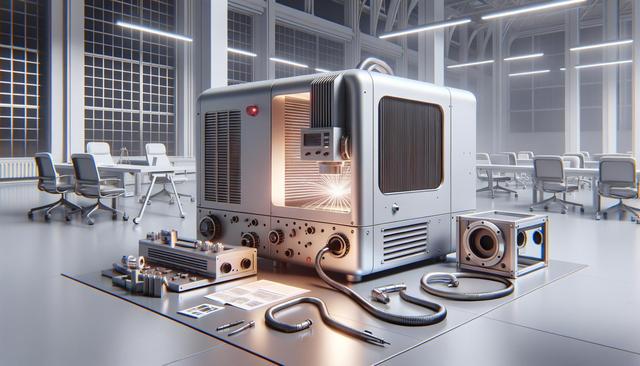Understanding Laser Welding Technology
Laser welding machines use focused laser beams to fuse materials with high accuracy and speed. This technology excels in producing strong, clean welds with minimal distortion, making it especially valuable in industries that require intricate or delicate components. Fiber laser welding, in particular, is known for its efficiency and lower maintenance demands due to its solid-state design. The beam quality in fiber lasers is typically superior, resulting in improved performance and deeper penetration.
There are different types of laser sources used for welding applications, including fiber, CO2, and Nd:YAG lasers. Each has distinct characteristics suited to specific tasks. For instance:
- Fiber lasers: Suitable for high-speed and deep penetration welding on metals.
- CO2 lasers: Often used for non-metal materials and thicker workpieces.
- Nd:YAG lasers: Offer flexibility with both pulsed and continuous modes.
Choosing the right technology depends on the materials involved, the desired weld quality, and production volume. For many modern manufacturing settings, the fiber laser welding machine price is justified by its durability, speed, and energy efficiency.
Key Features to Consider When Buying
When evaluating a laser welding machine for your operations, it’s important to assess several core features. These features significantly influence the machine’s performance, reliability, and long-term value. Here are some critical elements to evaluate:
- Power Output: Determines the depth and speed of welds. Higher power enables faster processing but requires careful heat management.
- Beam Quality: Affects the precision and cleanliness of the welds. Superior beam quality ensures minimal spatter and better joint strength.
- Cooling System: Efficient cooling is vital for consistent performance and machine longevity.
- Control Interface: A user-friendly interface simplifies programming and operation, reducing setup time and human error.
- Automation Compatibility: Machines that support robotic integration or CNC control can significantly enhance productivity.
Additional considerations include safety features, maintenance requirements, and the availability of support services. Investing in a machine with built-in diagnostics and remote monitoring can help reduce downtime and streamline maintenance.
Matching Machine Capabilities with Application Needs
Laser welding machines are used across a wide range of industries, each with specific requirements. To ensure optimal results, it’s important to align the machine’s capabilities with the application. For example, in the automotive sector, high-speed precision welding is essential for components like transmission parts and fuel injectors. In contrast, the medical industry often requires ultra-fine welds on small, delicate parts made from stainless steel or titanium.
When selecting a machine, consider the following application-specific factors:
- Material Types: Different metals absorb laser energy differently. Fiber lasers perform well with reflective materials like aluminum and copper.
- Weld Joint Design: Some machines handle butt joints better, while others excel at lap joints or fillet welds.
- Production Volume: High-volume production lines benefit from machines with fast cycle times and automation support.
- Part Size and Geometry: Compact machines with flexible optics are better for small or complex components.
Identifying these needs up front will guide your investment and help ensure the fiber laser welding machine price aligns with the expected performance and output.
Evaluating Cost and Long-Term Value
Laser welding systems represent a significant investment, but a higher upfront cost can lead to lower operational expenses over time. The total cost of ownership should include not only the purchase price but also operational factors such as energy consumption, consumable parts, maintenance, and potential downtime. Fiber lasers, while sometimes more expensive initially, tend to offer excellent long-term value due to their low maintenance and high efficiency.
Consider these cost-related elements:
- Initial Purchase Price: Varies based on power, features, and build quality.
- Maintenance and Repairs: Solid-state fiber lasers generally require less frequent maintenance.
- Energy Consumption: Efficient systems reduce electricity costs.
- Training and Support: Quality training and accessible technical support can reduce errors and accelerate implementation.
It’s also wise to factor in scalability. Can the machine accommodate future growth or new applications? Investing with future adaptability in mind can extend the useful life of your equipment and provide better returns.
Choosing a Reliable Supplier
Selecting a trustworthy supplier is just as important as choosing the right machine. A reliable vendor will not only provide quality equipment but also offer ongoing support, training, and spare parts availability. Look for suppliers that have a strong track record in the industry and offer warranties or service agreements that protect your investment.
Key attributes of a dependable supplier include:
- Transparent product specifications and honest pricing.
- Accessible customer service and technical support.
- Comprehensive training programs.
- Availability of replacement parts and consumables.
- Positive reviews or recommendations from other users in your industry.
Visiting trade shows, attending demonstrations, or requesting on-site trials are great ways to evaluate both the machine and the supplier before making a commitment. A good supplier will be willing to discuss your specific needs and help you find a model that balances performance and budget.
Conclusion: Making a Smart Investment
Buying a laser welding machine is a significant decision that can greatly impact your production capabilities and product quality. By understanding the technology, assessing key features, and aligning the machine with your application needs, you can make a well-informed investment. Considering the fiber laser welding machine price in terms of long-term value, operational efficiency, and adaptability is essential for achieving sustainable growth. Partnering with a reliable supplier ensures ongoing support and maximizes your return. With the right approach, your purchase can drive innovation, precision, and productivity in your manufacturing operations.


